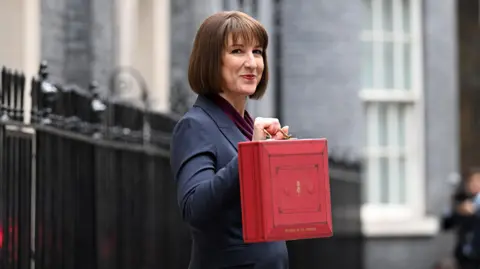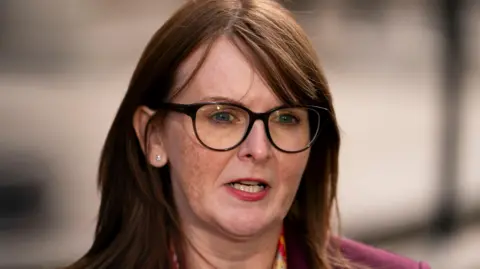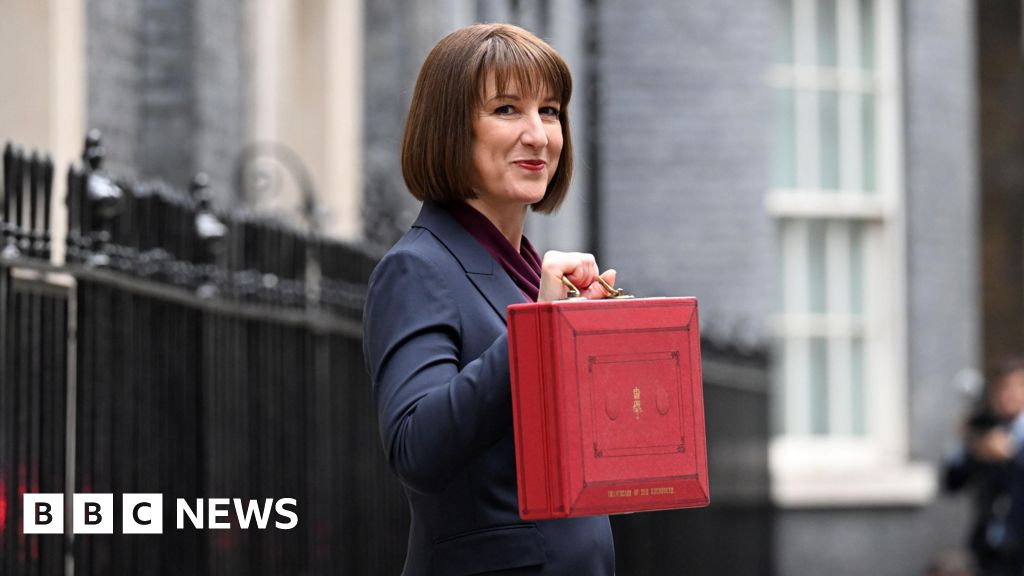 BBC
BBCThere is often a pantomime on Budget day.
It begins with the chancellor announcing that Northern Ireland is getting lots of extra money.
A few hours later the finance minister will appear to say ‘Oh no we aren’t’, based on the calculations done by Stormont officials.
It can sometimes take days to establish which version is closest to reality.
 PA Media
PA MediaBudget day 2024 was different.
The chancellor said there would be an additional £1.5bn for NI next year.
Finance Minister Caoimhe Archibald promptly agreed and said it appeared to be “a genuine attempt to protect public services”.
There is also an additional £640m available for use in this financial year, more than the £500m Archibald had been expecting.
This takes a lot of the immediate pressure off Stormont’s finances and makes for an easier job of getting agreement on next year’s budget.
This respite may be short lived as the chancellor’s plans suggest that from 2026 onwards day-to-day public spending will increase by only 1.3% a year.
The next step for the finance minister is to agree a monitoring round – this is a budget exercise where unspent or unallocated funds are shared out among the Stormont departments.
Usually the Department of Health gets the biggest share of this. At the last monitoring round it got £122m of the £300m total.
The Department for Infrastructure will be asking for a big chunk for roads maintenance.
The Department of Justice will be looking for money for policing. This week the PSNI said that increasing the number of officers is ‘the single most important issue the Executive needs to address this year.’
What happens next?
In fact all departments have pressing priorities which is illustrated by the ‘spending pressure’ of almost £770m outlined by the minister in September.
When Archibald delivers the monitoring round she should be in a position to say that pressure is now manageable given the extra money which is flowing from the UK budget.
Then it is on to producing a draft Stormont budget for 2025/26. The intention is to agree that before Christmas and then put it out for consultation to be finalised for the start of the financial year.
This year’s Stormont budget had a fractious conclusion with the UUP, one of the Executive parties, voting against it.
The then UUP Health Minister, Robin Swann, said his budget allocation was so inadequate that it meant people would be “at increased risk of harm”.
This stance irritated his Executive colleagues some of whom suspected pre-election posturing.
The additional money should act as a balm for Executive relations this time round although the new minister, Mike Nesbitt, will continue to press for his department to get the lion’s share of the new funding.


